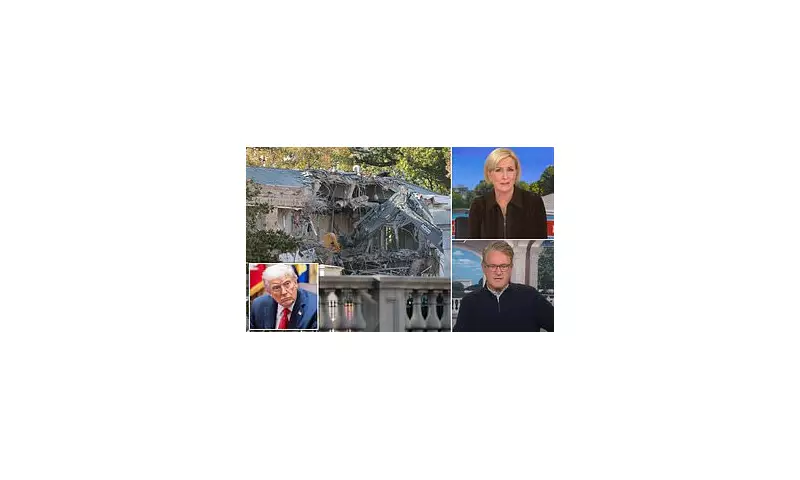
The Biden White House has unleashed a furious broadside against one of America's most influential morning news programmes, accusing MSNBC's 'Morning Joe' of actively harming democratic discourse in a dramatic escalation of tensions between the administration and its traditional media allies.
The Breaking Point
According to explosive reports, senior White House officials initiated a coordinated campaign to discredit the popular MSNBC show, with communications staff circulating talking points that labelled the programme's coverage as 'irresponsible' and damaging to President Biden's re-election prospects.
The unprecedented move represents a stunning deterioration in relations between the administration and a network that has typically been sympathetic to Democratic causes. Insiders describe the situation as a 'full-scale demolition operation' against the programme and its hosts.
Democracy in the Crosshairs
White House representatives have gone so far as to claim that 'Morning Joe's' recent coverage choices could 'break American democracy', suggesting the programme's scrutiny of President Biden's age and fitness for office plays directly into Republican hands.
This extraordinary accusation has sent shockwaves through media circles, with many questioning whether the administration's aggressive stance represents a dangerous attempt to influence editorial independence.
Media Backlash Grows
The White House's confrontational approach has prompted concern among First Amendment advocates and media watchdogs, who warn that such direct interference sets a worrying precedent for press freedom.
Multiple sources within MSNBC confirm that network executives are deeply troubled by the administration's tactics, though the network has maintained its editorial line despite the intense pressure from its traditional political allies.
A Relationship in Ruins
What makes this confrontation particularly remarkable is the long-standing relationship between the Biden administration and MSNBC. For years, the network has provided favourable coverage to Democratic initiatives, making this public falling-out all the more significant.
Observers note that the White House's decision to go public with its criticisms suggests a level of desperation, potentially indicating deeper concerns about the President's political standing as the election cycle intensifies.
The fallout from this extraordinary clash continues to reverberate through Washington, raising fundamental questions about the relationship between power and the press in modern American politics.





